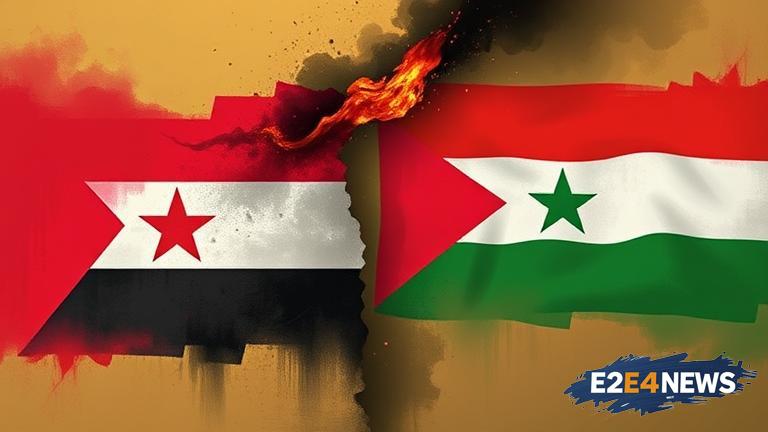The situation in Sudan has taken a turn for the worse with the announcement of a parallel government by the Rapid Support Forces (RSF). This move has been met with widespread criticism and concern from the international community, as it threatens to further destabilize the already fragile political landscape. The RSF, a powerful militia group, has been at odds with the transitional government, which has been in power since the ousting of former President Omar al-Bashir in 2019. The parallel government announcement has sparked fears of a potential civil war, as the RSF has significant military capabilities and a strong presence in the country. The humanitarian crisis in Sudan has been ongoing for several years, with millions of people in need of aid and thousands displaced due to conflict and violence. The economic situation is also dire, with high inflation, food shortages, and a lack of basic services. The international community has been calling for a peaceful resolution to the crisis, with the United Nations and other organizations urging all parties to engage in dialogue and find a negotiated solution. However, the announcement of a parallel government has made it clear that the RSF is not interested in negotiations, and instead is seeking to consolidate its power and control. The implications of this move are far-reaching, and could have significant consequences for the region and beyond. The African Union and other regional organizations have condemned the announcement, and are working to find a way to resolve the crisis peacefully. The European Union and other international partners have also expressed concern, and are considering sanctions and other measures to pressure the RSF to reverse its decision. The situation on the ground is increasingly dire, with reports of violence and intimidation against civilians, as well as a breakdown in basic services such as healthcare and education. The humanitarian community is working to respond to the crisis, but the situation is complex and challenging, and it is unclear how the needs of the affected population will be met. The RSF’s announcement has also raised concerns about the potential for further conflict and instability in the region, as well as the potential for extremist groups to exploit the situation. The international community must take a strong and unified stance in response to this crisis, and work to find a peaceful and negotiated solution that takes into account the needs and concerns of all parties. The people of Sudan deserve a peaceful and stable future, and it is the responsibility of the international community to support them in achieving this goal. The situation in Sudan is a complex and multifaceted one, and will require a sustained and coordinated effort to resolve. The international community must be prepared to provide significant support and resources to help address the humanitarian crisis, and to support the people of Sudan in their efforts to build a more peaceful and stable future. The announcement of a parallel government by the RSF is a significant setback for the people of Sudan, and it is imperative that the international community takes immediate action to address the crisis. The situation is urgent, and requires a swift and decisive response. The international community must work together to find a solution that takes into account the needs and concerns of all parties, and that supports the people of Sudan in their efforts to build a more peaceful and stable future. The humanitarian crisis in Sudan is a stark reminder of the need for international cooperation and collective action to address the world’s most pressing challenges. The situation in Sudan is a test of the international community’s commitment to peace, stability, and human rights, and it is imperative that we rise to the challenge and work together to find a solution.





